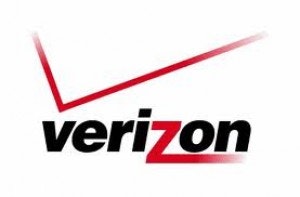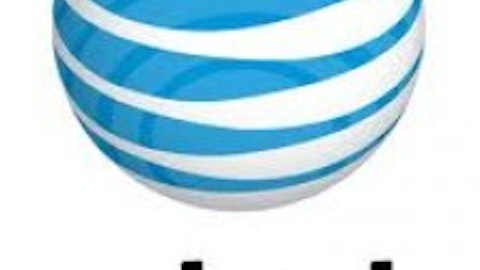
Therein lies the problem. Through a security filing from Vodafone Group Plc (ADR) (NASDAQ:VOD), which owns 45% of Verizon Communications Inc. (NYSE:VZ), it was revealed that Verizon Communications Inc. (NYSE:VZ) has $23.5 billion in purchase commitments with Apple Inc. (NASDAQ:AAPL) due later this year. A purchase commitment is a promise that a telecom company makes to a handset manufacturer for a guaranteed number of units sold over a given length of time. In this particular case, Verizon Communications Inc. (NYSE:VZ) promised to sell $23.5 billion in iPhones by the end of 2013, or be forced to pay the difference by purchasing the rest of the phones.
Biting off more than it can chew
However, Verizon Communications Inc. (NYSE:VZ) was unable to sell even half that amount in 2012, which indicates that the company stands no chance of hitting that lofty sales target this year. To date, Apple Inc. (NASDAQ:AAPL) has sold over 500 million devices, with 40% of those sales occurring in 2012. It appears that Verizon severely overestimated the growth potential of the iPhone in 2013, and believed that it could actually double its 2012 sales figures this year.
Unfortunately, recent data from IDC reveals that Google Inc (NASDAQ:GOOG)‘s Android first quarter global market share rose year-on-year from 59.1% to 75.0%, whereas Apple Inc. (NASDAQ:AAPL) iOS’ share dropped from 23% to 17.3%. This means that Verizon could soon be left holding the bag when its purchase commitments come due – by $12 billion to $14 billion, according to analysts at Moffett Research. A payment that massive could reduce Verizon’s annual earnings by $4 to $5 per share, and force the company to consider backing Android handset manufacturers, like Samsung, instead.
The billion dollar question
That leads us to the billion dollar question on Verizon shareholders’ minds: will Apple Inc. (NASDAQ:AAPL) actually force Verizon to buy up that many iPhones if it fails to meet its agreed sales targets? Or will Apple renegotiate the terms with Verizon later this year, as to not alienate an important ally in the United States?
However, I believe that Apple will likely force Verizon to pay at least most of the purchase commitment, to show its other telecom partners, such as Leap Wireless International, Inc. (NASDAQ:LEAP) (recently acquired by AT&T Inc. (NYSE:T)) and Sprint Nextel Corporation (NYSE:S) that it intends to enforce sales shortfalls. Leap Wireless International, Inc. (NASDAQ:LEAP) also signed a three-year purchase commitment with Apple that it could also fall short off. Leap estimates that the shortfall could cost the company $100 million if Apple demanded a payment for the entire year’s iPhone orders. However, Sprint Nextel Corporation (NYSE:S) made a much more conservative deal with Apple, promising to sell at least $15.5 billion of iPhones between 2011 and 2015, a much more conservative target that the company expects to meet.
Foreign companies smartly refuse to deal with Apple
These terms are incredibly tilted in Apple’s favor. Critics claim that these deals are made at no risk to Apple, with telecom companies shouldering all the risk and forced to pay dearly if Apple’s products wane in popularity.
Therefore, Asian telecom companies such as Japan’s NTT Docomo Inc (ADR) (NYSE:DCM) and China Mobile Ltd. (ADR) (NYSE:CHL) have flatly refused to agree to sign any purchase commitments with Apple. Asian manufacturers clearly understand that Apple needs them more than they need Apple, since handsets from Samsung, Sony Corporation (ADR) (NYSE:SNE) and other Android manufacturers have been enough to carry their top and bottom line growth over the past few years.
NTT Docomo Inc (ADR) (NYSE:DCM) is Japan’s largest telecom company, but it has notably avoided carrying the iPhone for that reason. Apple also refused to allow NTT Docomo to pre-install its own apps, which competing Android manufacturers have allowed the company to do. Despite losing some customers to iPhone-carrying competitors KDDI and Softbank due to the lack of the iPhone, NTT Docomo’s top and bottom line growth haven’t suffered terribly. Last quarter, NTT Docomo’s earnings rose 14.2% as its revenue climbed 3.1%. By comparison, Verizon’s earnings and revenue climbed 15.8% and 4.2%, respectively.
China Mobile Ltd. (ADR) (NYSE:CHL), the world’s largest telecom company by total subscribers, has also held out on carrying the iPhone. China Mobile’s user base hit 735 million users in May, and it is gaining roughly 4 to 5 million subscribers monthly, without offering a single iPhone. China Mobile’s month-on-month 3G subscriber base is also the fastest growing in China, which means that Apple doesn’t have much clout to convince China Mobile to agree to any kind of purchase commitment. Samsung notably sold 12 million smartphones in China last quarter, more than twice the number of iPhones sold by Apple. Lenovo and Huawei also outsold Apple, selling 8 million smartphones each. In addition, Chinese customers have a myriad of Android options to choose from, such as high-powered, low-priced smartphones Xiaomi and Huawei.
Last quarter, China Mobile’s earnings rose 3.8% as its revenue increased 5.7% from the prior year, outperforming the comparably sized AT&T Inc. (NYSE:T), which reported 3.2% earnings growth on a 1.5% revenue decline last quarter.
Beggars can’t be choosers
With every quarter of market share losses that Apple reports, Tim Cook is pushed closer to accepting whatever terms NTT Docomo and China Mobile offer him. Now, as Verizon’s deadline draws nearer, Cook will be faced with a daunting choice: should he force Verizon to purchase $12 billion to $14 billion of iPhones, or should he cut it some slack to save what friends it still has?
On the other hand, cramming 19 million unwanted iPhones down Verizon’s throat will result in steep discounts that could help Apple gain some much needed market share at Verizon’s expense. Yet this move could cause Verizon to refuse to sign future agreements with Apple, and force it to follow the example of NTT Docomo and China Mobile, by promoting Android handsets instead.
The Foolish Bottom Line
Apple investors need to watch the outcome of its upcoming confrontation with Verizon closely, since it could set a future precedent for Apple’s negotiating clout with telecom companies. Tim Cook needs to realize that the iPhone isn’t as attractive to telecom companies as it was before, and that he may need to make some steep concessions to regain market share against Samsung and its Android brethren. At this point for Apple, gaining more telecom allies worldwide is infinitely more important than promoting one-sided, risk-free deals.
The article Will Apple Really Force Verizon to Cough up $14 Billion? originally appeared on Fool.com and is written by Leo Sun.
Leo Sun owns shares of Apple. The Motley Fool recommends Apple. The Motley Fool owns shares of Apple and China Mobile. Leo is a member of The Motley Fool Blog Network — entries represent the personal opinion of the blogger and are not formally edited.
Copyright © 1995 – 2013 The Motley Fool, LLC. All rights reserved. The Motley Fool has a disclosure policy.





